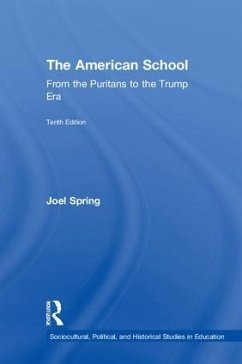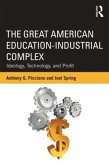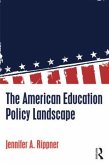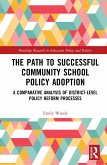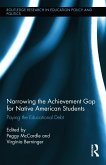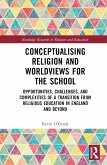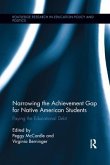- Gebundenes Buch
- Merkliste
- Auf die Merkliste
- Bewerten Bewerten
- Teilen
- Produkt teilen
- Produkterinnerung
- Produkterinnerung
Joel Spring provides a variety of interpretations of American schooling, from conservative to leftist, in order to spark the reader's own critical thinking about history and schools.
Andere Kunden interessierten sich auch für
![The Great American Education-Industrial Complex The Great American Education-Industrial Complex]() Anthony G. PiccianoThe Great American Education-Industrial Complex70,99 €
Anthony G. PiccianoThe Great American Education-Industrial Complex70,99 €![The Great American Education-Industrial Complex The Great American Education-Industrial Complex]() Anthony G. PiccianoThe Great American Education-Industrial Complex206,99 €
Anthony G. PiccianoThe Great American Education-Industrial Complex206,99 €![The American Education Policy Landscape The American Education Policy Landscape]() Jennifer A. RippnerThe American Education Policy Landscape54,99 €
Jennifer A. RippnerThe American Education Policy Landscape54,99 €![The Path to Successful Community School Policy Adoption The Path to Successful Community School Policy Adoption]() Emily Lubin WoodsThe Path to Successful Community School Policy Adoption185,99 €
Emily Lubin WoodsThe Path to Successful Community School Policy Adoption185,99 €![Narrowing the Achievement Gap for Native American Students Narrowing the Achievement Gap for Native American Students]() Narrowing the Achievement Gap for Native American Students195,99 €
Narrowing the Achievement Gap for Native American Students195,99 €![Conceptualising Religion and Worldviews for the School Conceptualising Religion and Worldviews for the School]() Kevin O'GradyConceptualising Religion and Worldviews for the School195,99 €
Kevin O'GradyConceptualising Religion and Worldviews for the School195,99 €![Narrowing the Achievement Gap for Native American Students Narrowing the Achievement Gap for Native American Students]() Narrowing the Achievement Gap for Native American Students58,99 €
Narrowing the Achievement Gap for Native American Students58,99 €-
-
-
Joel Spring provides a variety of interpretations of American schooling, from conservative to leftist, in order to spark the reader's own critical thinking about history and schools.
Hinweis: Dieser Artikel kann nur an eine deutsche Lieferadresse ausgeliefert werden.
Hinweis: Dieser Artikel kann nur an eine deutsche Lieferadresse ausgeliefert werden.
Produktdetails
- Produktdetails
- Verlag: Routledge
- 10. Auflage
- Seitenzahl: 540
- Erscheinungstermin: 14. Februar 2018
- Englisch
- Abmessung: 235mm x 157mm x 33mm
- Gewicht: 924g
- ISBN-13: 9781138502918
- ISBN-10: 113850291X
- Artikelnr.: 51276672
- Herstellerkennzeichnung
- Libri GmbH
- Europaallee 1
- 36244 Bad Hersfeld
- gpsr@libri.de
- Verlag: Routledge
- 10. Auflage
- Seitenzahl: 540
- Erscheinungstermin: 14. Februar 2018
- Englisch
- Abmessung: 235mm x 157mm x 33mm
- Gewicht: 924g
- ISBN-13: 9781138502918
- ISBN-10: 113850291X
- Artikelnr.: 51276672
- Herstellerkennzeichnung
- Libri GmbH
- Europaallee 1
- 36244 Bad Hersfeld
- gpsr@libri.de
Joel Spring is a professor at Queens College/City University of New York and the Graduate Center of the City University of New York, USA.
Contents
List of Time Lines
About the Author
Preface
1 Thinking Critically about History
Interpreting School History: From the Right to the Left
Purposes of Educational History and Its Effect on Public Images and
Emotions Regarding Schools
Themes in American Educational History
Globalization Framework
Religious Debates in U.S. Schools from the Colonial Era to the Present
Schools and the Culture Wars
Schools as Managers of Public Thought
Racial and Ethnic Conflict as a Theme in School History
The Role in Educational History of Equality of Opportunity and Human
Capital
Globalization: Consumer and Environmental Education
2 Globalization and Religion in Colonial Education
Education and Culture in Colonial Society
The Role of Education in Colonial Society
Historical Interpretations of Colonial Education
Authority and Social Status in Colonial Education
Colonialism and Educational Policy
Language and Cultural Conflict
Native Americans: Education as Cultural Imperialism
Enslaved Africans: Atlantic Creoles
Enslaved Africans: The Plantation System
The Idea of Secular Education: Freedom of Thought and the Establishment of
Academies
Benjamin Franklin and Education as Social Mobility
The Family and the Child
Conclusion
3 Nationalism, Multiculturalism, and Moral Reform in the New Republic
World Culture Theorists
The Problem of Cultural Diversity
Religion and Liberty
Noah Webster: Nationalism and the Creation of a Dominant Culture
Thomas Jefferson: A Natural Aristocracy
Moral Reform and Faculty Psychology
Concepts of Childhood: Protected, Working, Poor, Rural, and Enslaved
Charity Schools, the Lancasterian System, and Prisons
Institutional Change and the American College
Public versus Private Schools
Conclusion: Continuing Issues in American Education
4 The Ideology and Politics of the Common School
Three Distinctive Features of the Common School Movement
The Ideology of the Common School Movement
Workingmen and the Struggle for a Republican Education
How Much Government Involvement in Schools? The Whigs and the Democrats
The Birth of the High School
The Continuing Debate about the Common School Ideal
Conclusion
5 The Common School and the Threat of Cultural Pluralism
The Increasing Multicultural Population of the United States
Irish Catholics: A Threat to Anglo-American Schools and Culture
Slavery and Freedom in the North: African Americans and Schools in the New
Republic
Native Americans
Conclusion
6 Organizing the American School: Teachers and Bureaucracy
The American Teacher
Revolution in Teaching Methods: Object Learning
The Evolution of Bureaucracy: A Global Model
The Age-Graded Classroom
McGuffey's Readers and the Spirit of Capitalism
Conclusion
7 Multiculturalism and the Failure of the Common School Ideal
Mexican Americans: Race and Citizenship
Asian Americans: Exclusion and Segregation
Native American Citizenship
Educational Racism and Deculturalization
Citizenship for African Americans
Issues Regarding Puerto Rican Citizenship
Puerto Rican American Educational Issues
Conclusion: Setting the Stage for the Great Civil Rights Movement
8 Global Migration and the Growth of the Welfare Function of Schools
Immigration from Southern and Eastern Europe
The Kindergarten Movement
Home Economics: Education of the New Consumer Woman
School Cafeterias, the American Cuisine, and Processed Foods
The Play Movement
Summer School
Social Centers
The New Culture Wars
Resisting Segregation: African Americans
The Second Crusade for Black Education
Resisting Segregation: Mexican Americans
Native American Boarding Schools
Resisting Discrimination: Asian Americans
Educational Resistance in Puerto Rico
Conclusion: Public Schooling as America's Welfare Institution
9 Human Capital: High School, Junior High School, and Vocational Guidance
and Education
The High School
Vocational Education
Junior High School
Adapting the Classroom to the Workplace: Lesson Plans
Adapting the Classroom to the Workplace: Progressivism
Adapting the Classroom to the Workplace: Stimulus-Response
Classroom Management as Preparation for Factory Life
Historical Interpretations: Public Benefit or Corporate Greed?
Conclusion: The Meaning of Equality of Opportunity
10 Scientific School Management: Testing, Immigrants, and Experts
Scientifically Managed Schools: Meritocracy and Reducing Public Control
Professionalizing Educational Administration
Measurement, Democracy, and the Superiority of Anglo-Americans
Closing the Door to Immigrants: The 1924 Immigration Act
"Backward" Children and Special Classrooms
Eugenics and the Age of Sterilization
The University and Meritocracy
Conclusion
11 The Politics of Knowledge: Teachers' Unions, the American Legion, and
the American Way
Teachers versus Administrators: The American Federation of Teachers
The Rise of the National Education Association
The Political Changes of the Depression Years
The Politics of Ideological Management: The American Legion
Textbook Censorship and the Teaching of Evolution
Selling the "American Way" in Schools and on Billboards
Propaganda and Free Speech in the Schools
Rugg and Advertising
Conclusion
12 Schools, Media, and Popular Culture: Influencing the Minds of Children
and Teenagers
Censorship of Movies as a Form of Public Education
Educators and the Movies
The Production Code: Movies as Educators
Should Commercial Radio or Educators Determine National Culture?
Creating the Superhero for Children's Radio
Controlling the Influence of Comic Books
Educating Children as Consumers
The Creation of Teenage Markets
Children and Youth from the 1950s to the Twenty-First Century
Conclusion
13 American Schools and Global Politics: The Cold War and Poverty
Youth Unemployment: Universal Military Service and the GI Bill
The Scholastic Aptitude Test (SAT) and the Educational Testing Service
The Cold War and Purging the Schools of Communists
American Schools: Weakest Link to Global Victory?
Global Imperatives: The National Defense Education Act
Schools and the War on Poverty
Sesame Street and Educational Television
Conclusion
14 The Fruits of Globalization: Civil Rights, Global Migration, and
Multicultural Education
Ending School Segregation of National Minorities
The Reverend Dr. Martin Luther King Jr.
Native Americans and Indigenous Educational Rights
Asian Americans: Educating the "Model Minority"
Hispanic/Latino Americans
Bilingual Education: The Culture Wars Continued
The Immigration Act of 1965 and the New American Population
Multicultural Education and the Culture Wars
Schools and the International Women's Movement
Children with Special Needs
The Coloring of Textbook Town
Liberating the Textbook Town Housewife for More Consumption
Conclusion: The Cold War and Civil Rights
15 Globalization, Religion, Free Markets, and Human Capital: From Nixon to
Trump
Free Markets and Human Capital: School Choice and the Role of Schools in
Economic Growth and Ending Poverty
School Prayer and Bible Reading
Christian Coalition, School Prayer and School Choice
Christian Coalition: Religious Politics
No Child Left Behind, Testing and School Prayer
No Child Left Behind And Religious Conservatives
The End of The Common School: Choice, Privatization, and Charter Schools
Trump Administration: Free Markets, Choice, and Privatization
Educating for the Consumer Economy
Global Crisis and the Demise of Environmental Education
Conclusion: From Horace Mann To Donald Trump
List of Time Lines
About the Author
Preface
1 Thinking Critically about History
Interpreting School History: From the Right to the Left
Purposes of Educational History and Its Effect on Public Images and
Emotions Regarding Schools
Themes in American Educational History
Globalization Framework
Religious Debates in U.S. Schools from the Colonial Era to the Present
Schools and the Culture Wars
Schools as Managers of Public Thought
Racial and Ethnic Conflict as a Theme in School History
The Role in Educational History of Equality of Opportunity and Human
Capital
Globalization: Consumer and Environmental Education
2 Globalization and Religion in Colonial Education
Education and Culture in Colonial Society
The Role of Education in Colonial Society
Historical Interpretations of Colonial Education
Authority and Social Status in Colonial Education
Colonialism and Educational Policy
Language and Cultural Conflict
Native Americans: Education as Cultural Imperialism
Enslaved Africans: Atlantic Creoles
Enslaved Africans: The Plantation System
The Idea of Secular Education: Freedom of Thought and the Establishment of
Academies
Benjamin Franklin and Education as Social Mobility
The Family and the Child
Conclusion
3 Nationalism, Multiculturalism, and Moral Reform in the New Republic
World Culture Theorists
The Problem of Cultural Diversity
Religion and Liberty
Noah Webster: Nationalism and the Creation of a Dominant Culture
Thomas Jefferson: A Natural Aristocracy
Moral Reform and Faculty Psychology
Concepts of Childhood: Protected, Working, Poor, Rural, and Enslaved
Charity Schools, the Lancasterian System, and Prisons
Institutional Change and the American College
Public versus Private Schools
Conclusion: Continuing Issues in American Education
4 The Ideology and Politics of the Common School
Three Distinctive Features of the Common School Movement
The Ideology of the Common School Movement
Workingmen and the Struggle for a Republican Education
How Much Government Involvement in Schools? The Whigs and the Democrats
The Birth of the High School
The Continuing Debate about the Common School Ideal
Conclusion
5 The Common School and the Threat of Cultural Pluralism
The Increasing Multicultural Population of the United States
Irish Catholics: A Threat to Anglo-American Schools and Culture
Slavery and Freedom in the North: African Americans and Schools in the New
Republic
Native Americans
Conclusion
6 Organizing the American School: Teachers and Bureaucracy
The American Teacher
Revolution in Teaching Methods: Object Learning
The Evolution of Bureaucracy: A Global Model
The Age-Graded Classroom
McGuffey's Readers and the Spirit of Capitalism
Conclusion
7 Multiculturalism and the Failure of the Common School Ideal
Mexican Americans: Race and Citizenship
Asian Americans: Exclusion and Segregation
Native American Citizenship
Educational Racism and Deculturalization
Citizenship for African Americans
Issues Regarding Puerto Rican Citizenship
Puerto Rican American Educational Issues
Conclusion: Setting the Stage for the Great Civil Rights Movement
8 Global Migration and the Growth of the Welfare Function of Schools
Immigration from Southern and Eastern Europe
The Kindergarten Movement
Home Economics: Education of the New Consumer Woman
School Cafeterias, the American Cuisine, and Processed Foods
The Play Movement
Summer School
Social Centers
The New Culture Wars
Resisting Segregation: African Americans
The Second Crusade for Black Education
Resisting Segregation: Mexican Americans
Native American Boarding Schools
Resisting Discrimination: Asian Americans
Educational Resistance in Puerto Rico
Conclusion: Public Schooling as America's Welfare Institution
9 Human Capital: High School, Junior High School, and Vocational Guidance
and Education
The High School
Vocational Education
Junior High School
Adapting the Classroom to the Workplace: Lesson Plans
Adapting the Classroom to the Workplace: Progressivism
Adapting the Classroom to the Workplace: Stimulus-Response
Classroom Management as Preparation for Factory Life
Historical Interpretations: Public Benefit or Corporate Greed?
Conclusion: The Meaning of Equality of Opportunity
10 Scientific School Management: Testing, Immigrants, and Experts
Scientifically Managed Schools: Meritocracy and Reducing Public Control
Professionalizing Educational Administration
Measurement, Democracy, and the Superiority of Anglo-Americans
Closing the Door to Immigrants: The 1924 Immigration Act
"Backward" Children and Special Classrooms
Eugenics and the Age of Sterilization
The University and Meritocracy
Conclusion
11 The Politics of Knowledge: Teachers' Unions, the American Legion, and
the American Way
Teachers versus Administrators: The American Federation of Teachers
The Rise of the National Education Association
The Political Changes of the Depression Years
The Politics of Ideological Management: The American Legion
Textbook Censorship and the Teaching of Evolution
Selling the "American Way" in Schools and on Billboards
Propaganda and Free Speech in the Schools
Rugg and Advertising
Conclusion
12 Schools, Media, and Popular Culture: Influencing the Minds of Children
and Teenagers
Censorship of Movies as a Form of Public Education
Educators and the Movies
The Production Code: Movies as Educators
Should Commercial Radio or Educators Determine National Culture?
Creating the Superhero for Children's Radio
Controlling the Influence of Comic Books
Educating Children as Consumers
The Creation of Teenage Markets
Children and Youth from the 1950s to the Twenty-First Century
Conclusion
13 American Schools and Global Politics: The Cold War and Poverty
Youth Unemployment: Universal Military Service and the GI Bill
The Scholastic Aptitude Test (SAT) and the Educational Testing Service
The Cold War and Purging the Schools of Communists
American Schools: Weakest Link to Global Victory?
Global Imperatives: The National Defense Education Act
Schools and the War on Poverty
Sesame Street and Educational Television
Conclusion
14 The Fruits of Globalization: Civil Rights, Global Migration, and
Multicultural Education
Ending School Segregation of National Minorities
The Reverend Dr. Martin Luther King Jr.
Native Americans and Indigenous Educational Rights
Asian Americans: Educating the "Model Minority"
Hispanic/Latino Americans
Bilingual Education: The Culture Wars Continued
The Immigration Act of 1965 and the New American Population
Multicultural Education and the Culture Wars
Schools and the International Women's Movement
Children with Special Needs
The Coloring of Textbook Town
Liberating the Textbook Town Housewife for More Consumption
Conclusion: The Cold War and Civil Rights
15 Globalization, Religion, Free Markets, and Human Capital: From Nixon to
Trump
Free Markets and Human Capital: School Choice and the Role of Schools in
Economic Growth and Ending Poverty
School Prayer and Bible Reading
Christian Coalition, School Prayer and School Choice
Christian Coalition: Religious Politics
No Child Left Behind, Testing and School Prayer
No Child Left Behind And Religious Conservatives
The End of The Common School: Choice, Privatization, and Charter Schools
Trump Administration: Free Markets, Choice, and Privatization
Educating for the Consumer Economy
Global Crisis and the Demise of Environmental Education
Conclusion: From Horace Mann To Donald Trump
Contents
List of Time Lines
About the Author
Preface
1 Thinking Critically about History
Interpreting School History: From the Right to the Left
Purposes of Educational History and Its Effect on Public Images and
Emotions Regarding Schools
Themes in American Educational History
Globalization Framework
Religious Debates in U.S. Schools from the Colonial Era to the Present
Schools and the Culture Wars
Schools as Managers of Public Thought
Racial and Ethnic Conflict as a Theme in School History
The Role in Educational History of Equality of Opportunity and Human
Capital
Globalization: Consumer and Environmental Education
2 Globalization and Religion in Colonial Education
Education and Culture in Colonial Society
The Role of Education in Colonial Society
Historical Interpretations of Colonial Education
Authority and Social Status in Colonial Education
Colonialism and Educational Policy
Language and Cultural Conflict
Native Americans: Education as Cultural Imperialism
Enslaved Africans: Atlantic Creoles
Enslaved Africans: The Plantation System
The Idea of Secular Education: Freedom of Thought and the Establishment of
Academies
Benjamin Franklin and Education as Social Mobility
The Family and the Child
Conclusion
3 Nationalism, Multiculturalism, and Moral Reform in the New Republic
World Culture Theorists
The Problem of Cultural Diversity
Religion and Liberty
Noah Webster: Nationalism and the Creation of a Dominant Culture
Thomas Jefferson: A Natural Aristocracy
Moral Reform and Faculty Psychology
Concepts of Childhood: Protected, Working, Poor, Rural, and Enslaved
Charity Schools, the Lancasterian System, and Prisons
Institutional Change and the American College
Public versus Private Schools
Conclusion: Continuing Issues in American Education
4 The Ideology and Politics of the Common School
Three Distinctive Features of the Common School Movement
The Ideology of the Common School Movement
Workingmen and the Struggle for a Republican Education
How Much Government Involvement in Schools? The Whigs and the Democrats
The Birth of the High School
The Continuing Debate about the Common School Ideal
Conclusion
5 The Common School and the Threat of Cultural Pluralism
The Increasing Multicultural Population of the United States
Irish Catholics: A Threat to Anglo-American Schools and Culture
Slavery and Freedom in the North: African Americans and Schools in the New
Republic
Native Americans
Conclusion
6 Organizing the American School: Teachers and Bureaucracy
The American Teacher
Revolution in Teaching Methods: Object Learning
The Evolution of Bureaucracy: A Global Model
The Age-Graded Classroom
McGuffey's Readers and the Spirit of Capitalism
Conclusion
7 Multiculturalism and the Failure of the Common School Ideal
Mexican Americans: Race and Citizenship
Asian Americans: Exclusion and Segregation
Native American Citizenship
Educational Racism and Deculturalization
Citizenship for African Americans
Issues Regarding Puerto Rican Citizenship
Puerto Rican American Educational Issues
Conclusion: Setting the Stage for the Great Civil Rights Movement
8 Global Migration and the Growth of the Welfare Function of Schools
Immigration from Southern and Eastern Europe
The Kindergarten Movement
Home Economics: Education of the New Consumer Woman
School Cafeterias, the American Cuisine, and Processed Foods
The Play Movement
Summer School
Social Centers
The New Culture Wars
Resisting Segregation: African Americans
The Second Crusade for Black Education
Resisting Segregation: Mexican Americans
Native American Boarding Schools
Resisting Discrimination: Asian Americans
Educational Resistance in Puerto Rico
Conclusion: Public Schooling as America's Welfare Institution
9 Human Capital: High School, Junior High School, and Vocational Guidance
and Education
The High School
Vocational Education
Junior High School
Adapting the Classroom to the Workplace: Lesson Plans
Adapting the Classroom to the Workplace: Progressivism
Adapting the Classroom to the Workplace: Stimulus-Response
Classroom Management as Preparation for Factory Life
Historical Interpretations: Public Benefit or Corporate Greed?
Conclusion: The Meaning of Equality of Opportunity
10 Scientific School Management: Testing, Immigrants, and Experts
Scientifically Managed Schools: Meritocracy and Reducing Public Control
Professionalizing Educational Administration
Measurement, Democracy, and the Superiority of Anglo-Americans
Closing the Door to Immigrants: The 1924 Immigration Act
"Backward" Children and Special Classrooms
Eugenics and the Age of Sterilization
The University and Meritocracy
Conclusion
11 The Politics of Knowledge: Teachers' Unions, the American Legion, and
the American Way
Teachers versus Administrators: The American Federation of Teachers
The Rise of the National Education Association
The Political Changes of the Depression Years
The Politics of Ideological Management: The American Legion
Textbook Censorship and the Teaching of Evolution
Selling the "American Way" in Schools and on Billboards
Propaganda and Free Speech in the Schools
Rugg and Advertising
Conclusion
12 Schools, Media, and Popular Culture: Influencing the Minds of Children
and Teenagers
Censorship of Movies as a Form of Public Education
Educators and the Movies
The Production Code: Movies as Educators
Should Commercial Radio or Educators Determine National Culture?
Creating the Superhero for Children's Radio
Controlling the Influence of Comic Books
Educating Children as Consumers
The Creation of Teenage Markets
Children and Youth from the 1950s to the Twenty-First Century
Conclusion
13 American Schools and Global Politics: The Cold War and Poverty
Youth Unemployment: Universal Military Service and the GI Bill
The Scholastic Aptitude Test (SAT) and the Educational Testing Service
The Cold War and Purging the Schools of Communists
American Schools: Weakest Link to Global Victory?
Global Imperatives: The National Defense Education Act
Schools and the War on Poverty
Sesame Street and Educational Television
Conclusion
14 The Fruits of Globalization: Civil Rights, Global Migration, and
Multicultural Education
Ending School Segregation of National Minorities
The Reverend Dr. Martin Luther King Jr.
Native Americans and Indigenous Educational Rights
Asian Americans: Educating the "Model Minority"
Hispanic/Latino Americans
Bilingual Education: The Culture Wars Continued
The Immigration Act of 1965 and the New American Population
Multicultural Education and the Culture Wars
Schools and the International Women's Movement
Children with Special Needs
The Coloring of Textbook Town
Liberating the Textbook Town Housewife for More Consumption
Conclusion: The Cold War and Civil Rights
15 Globalization, Religion, Free Markets, and Human Capital: From Nixon to
Trump
Free Markets and Human Capital: School Choice and the Role of Schools in
Economic Growth and Ending Poverty
School Prayer and Bible Reading
Christian Coalition, School Prayer and School Choice
Christian Coalition: Religious Politics
No Child Left Behind, Testing and School Prayer
No Child Left Behind And Religious Conservatives
The End of The Common School: Choice, Privatization, and Charter Schools
Trump Administration: Free Markets, Choice, and Privatization
Educating for the Consumer Economy
Global Crisis and the Demise of Environmental Education
Conclusion: From Horace Mann To Donald Trump
List of Time Lines
About the Author
Preface
1 Thinking Critically about History
Interpreting School History: From the Right to the Left
Purposes of Educational History and Its Effect on Public Images and
Emotions Regarding Schools
Themes in American Educational History
Globalization Framework
Religious Debates in U.S. Schools from the Colonial Era to the Present
Schools and the Culture Wars
Schools as Managers of Public Thought
Racial and Ethnic Conflict as a Theme in School History
The Role in Educational History of Equality of Opportunity and Human
Capital
Globalization: Consumer and Environmental Education
2 Globalization and Religion in Colonial Education
Education and Culture in Colonial Society
The Role of Education in Colonial Society
Historical Interpretations of Colonial Education
Authority and Social Status in Colonial Education
Colonialism and Educational Policy
Language and Cultural Conflict
Native Americans: Education as Cultural Imperialism
Enslaved Africans: Atlantic Creoles
Enslaved Africans: The Plantation System
The Idea of Secular Education: Freedom of Thought and the Establishment of
Academies
Benjamin Franklin and Education as Social Mobility
The Family and the Child
Conclusion
3 Nationalism, Multiculturalism, and Moral Reform in the New Republic
World Culture Theorists
The Problem of Cultural Diversity
Religion and Liberty
Noah Webster: Nationalism and the Creation of a Dominant Culture
Thomas Jefferson: A Natural Aristocracy
Moral Reform and Faculty Psychology
Concepts of Childhood: Protected, Working, Poor, Rural, and Enslaved
Charity Schools, the Lancasterian System, and Prisons
Institutional Change and the American College
Public versus Private Schools
Conclusion: Continuing Issues in American Education
4 The Ideology and Politics of the Common School
Three Distinctive Features of the Common School Movement
The Ideology of the Common School Movement
Workingmen and the Struggle for a Republican Education
How Much Government Involvement in Schools? The Whigs and the Democrats
The Birth of the High School
The Continuing Debate about the Common School Ideal
Conclusion
5 The Common School and the Threat of Cultural Pluralism
The Increasing Multicultural Population of the United States
Irish Catholics: A Threat to Anglo-American Schools and Culture
Slavery and Freedom in the North: African Americans and Schools in the New
Republic
Native Americans
Conclusion
6 Organizing the American School: Teachers and Bureaucracy
The American Teacher
Revolution in Teaching Methods: Object Learning
The Evolution of Bureaucracy: A Global Model
The Age-Graded Classroom
McGuffey's Readers and the Spirit of Capitalism
Conclusion
7 Multiculturalism and the Failure of the Common School Ideal
Mexican Americans: Race and Citizenship
Asian Americans: Exclusion and Segregation
Native American Citizenship
Educational Racism and Deculturalization
Citizenship for African Americans
Issues Regarding Puerto Rican Citizenship
Puerto Rican American Educational Issues
Conclusion: Setting the Stage for the Great Civil Rights Movement
8 Global Migration and the Growth of the Welfare Function of Schools
Immigration from Southern and Eastern Europe
The Kindergarten Movement
Home Economics: Education of the New Consumer Woman
School Cafeterias, the American Cuisine, and Processed Foods
The Play Movement
Summer School
Social Centers
The New Culture Wars
Resisting Segregation: African Americans
The Second Crusade for Black Education
Resisting Segregation: Mexican Americans
Native American Boarding Schools
Resisting Discrimination: Asian Americans
Educational Resistance in Puerto Rico
Conclusion: Public Schooling as America's Welfare Institution
9 Human Capital: High School, Junior High School, and Vocational Guidance
and Education
The High School
Vocational Education
Junior High School
Adapting the Classroom to the Workplace: Lesson Plans
Adapting the Classroom to the Workplace: Progressivism
Adapting the Classroom to the Workplace: Stimulus-Response
Classroom Management as Preparation for Factory Life
Historical Interpretations: Public Benefit or Corporate Greed?
Conclusion: The Meaning of Equality of Opportunity
10 Scientific School Management: Testing, Immigrants, and Experts
Scientifically Managed Schools: Meritocracy and Reducing Public Control
Professionalizing Educational Administration
Measurement, Democracy, and the Superiority of Anglo-Americans
Closing the Door to Immigrants: The 1924 Immigration Act
"Backward" Children and Special Classrooms
Eugenics and the Age of Sterilization
The University and Meritocracy
Conclusion
11 The Politics of Knowledge: Teachers' Unions, the American Legion, and
the American Way
Teachers versus Administrators: The American Federation of Teachers
The Rise of the National Education Association
The Political Changes of the Depression Years
The Politics of Ideological Management: The American Legion
Textbook Censorship and the Teaching of Evolution
Selling the "American Way" in Schools and on Billboards
Propaganda and Free Speech in the Schools
Rugg and Advertising
Conclusion
12 Schools, Media, and Popular Culture: Influencing the Minds of Children
and Teenagers
Censorship of Movies as a Form of Public Education
Educators and the Movies
The Production Code: Movies as Educators
Should Commercial Radio or Educators Determine National Culture?
Creating the Superhero for Children's Radio
Controlling the Influence of Comic Books
Educating Children as Consumers
The Creation of Teenage Markets
Children and Youth from the 1950s to the Twenty-First Century
Conclusion
13 American Schools and Global Politics: The Cold War and Poverty
Youth Unemployment: Universal Military Service and the GI Bill
The Scholastic Aptitude Test (SAT) and the Educational Testing Service
The Cold War and Purging the Schools of Communists
American Schools: Weakest Link to Global Victory?
Global Imperatives: The National Defense Education Act
Schools and the War on Poverty
Sesame Street and Educational Television
Conclusion
14 The Fruits of Globalization: Civil Rights, Global Migration, and
Multicultural Education
Ending School Segregation of National Minorities
The Reverend Dr. Martin Luther King Jr.
Native Americans and Indigenous Educational Rights
Asian Americans: Educating the "Model Minority"
Hispanic/Latino Americans
Bilingual Education: The Culture Wars Continued
The Immigration Act of 1965 and the New American Population
Multicultural Education and the Culture Wars
Schools and the International Women's Movement
Children with Special Needs
The Coloring of Textbook Town
Liberating the Textbook Town Housewife for More Consumption
Conclusion: The Cold War and Civil Rights
15 Globalization, Religion, Free Markets, and Human Capital: From Nixon to
Trump
Free Markets and Human Capital: School Choice and the Role of Schools in
Economic Growth and Ending Poverty
School Prayer and Bible Reading
Christian Coalition, School Prayer and School Choice
Christian Coalition: Religious Politics
No Child Left Behind, Testing and School Prayer
No Child Left Behind And Religious Conservatives
The End of The Common School: Choice, Privatization, and Charter Schools
Trump Administration: Free Markets, Choice, and Privatization
Educating for the Consumer Economy
Global Crisis and the Demise of Environmental Education
Conclusion: From Horace Mann To Donald Trump

